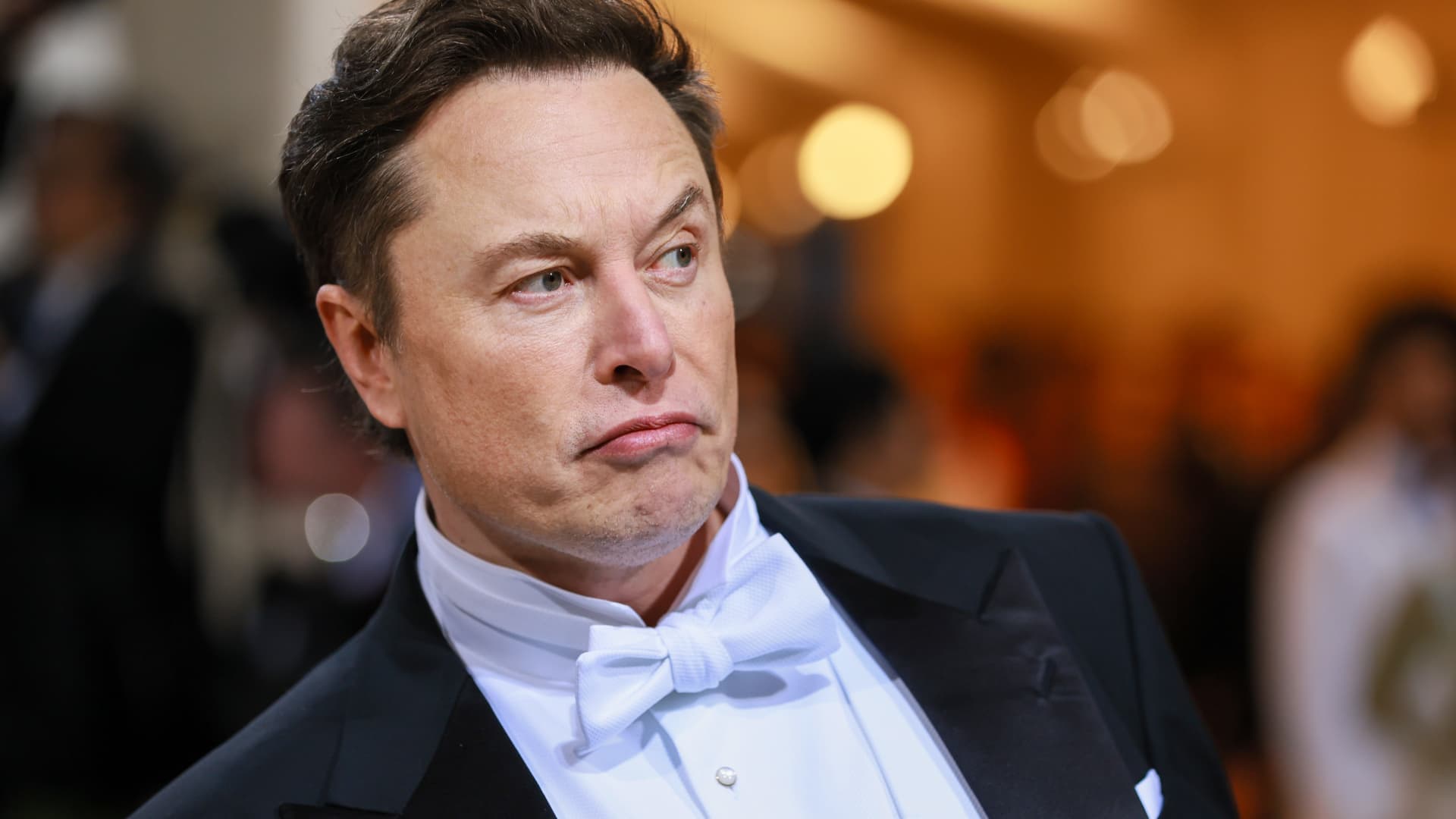
Billionaire Elon Musk on Friday moved to back out of his $44 billion deal to buy Twitter, citing continued disagreements over the number of spam accounts on the platform.
While Musk may want to end his bid for Twitter, it’s not as easy as just walking away, according to legal experts. Instead, Musk likely faces a long battle ahead with Twitter in court that could take many months to resolve.
Twitter’s board is in a very difficult position, said Ann Lipton, a professor of corporate governance at Tulane Law School. “They can’t just say, ‘Alright, let’s spare us the pain, Elon we’ll let you knock the price down by $20 per share, or we’ll settle, we’ll agree to walk away if you just pay the billion dollar break fee. I mean, Twitter is just not in a position to be able to do that.”
Doing so would risk triggering a lawsuit by Twitter shareholders, she added. Twitter shareholders have already filed a lawsuit against the company and Elon Musk himself over the chaotic deal.
Merger agreements are “very hard to get out of,” and so far, Musk appears to have provided insufficient evidence backing up his claims that Twitter lied about its spam figures, Lipton said.
Meanwhile, Twitter’s chairman, Bret Taylor, has already promised that the company’s board will take legal action against Musk.
“The Twitter Board is committed to closing the transaction on the price and terms agreed upon with Mr. Musk and plans to pursue legal action to enforce the merger agreement,” Taylor wrote in a tweet.
“We are confident we will prevail in the Delaware Court of Chancery,” Taylor added, referring to a Delaware court that settles disputes among businesses.
Musk signed a legally binding agreement in April to buy Twitter for $54.20 a share. The agreement states that if either party broke off the deal, they’d be required to pay a $1 billion breakup fee.
Not long after the agreement was reached, Musk began to hint that he was having second thoughts about the deal. In May, Musk said he decided to put his acquisition of Twitter “on hold” as he assessed the company’s claims that about 5% of its monetizable daily active users (mDAUs) are spam accounts. Twitter has said it has continued to share information with Musk, including turning over its “firehose,” the daily stream of tweets that flow through the platform.
In a letter on Friday, Musk’s lawyers accused Twitter of a “material breach of multiple provisions” of the deal agreement and claimed the company made “false and misleading representations” about the prevalence of fake accounts on its platform.
“There’s a lot of reason to doubt that it [Twitter] made such misrepresentations, but let’s assume that it did, it’s actually not a reason to cancel a merger agreement,” Lipton said in an interview.
In order for there to be a “material breach” of the deal agreement, Musk would have to prove that Twitter made false statements that were so egregious they’d have a long term impact on the company’s earnings potential, Lipton said.
“He has yet to put forth evidence that that is in fact the case,” she added.
Twitter appears to have the upper hand as the deal drama heads to court, Lipton said. The merger agreement includes a “specific performance clause,” which says Twitter has the right to sue Musk to force him to go through with the deal, as long as he still has the debt financing in place.
In the coming days, Twitter will likely file a lawsuit in Delaware and ask the judge to rule whether it violated the terms of the agreement, then order Musk to “perform his obligations under the contract and complete the merger,” said Brian Quinn, a professor at Boston College Law School.
After that, Quinn said he expects both parties will continue to make their arguments in court, as part of a litigation process that could take a year to play out. “For litigation, that’s quick,” he added.
Musk and Twitter could also reach a settlement.
Twitter might agree to a minor change in the deal price of $54.20 per share in order to avoid litigation, Lipton said. That may not please Twitter shareholders who liked the first offer. The purchase price represents a 38% premium to the company’s $39.31 closing stock price on April 1, 2022, which was the last trading day before Mr. Musk disclosed his approximately 9% stake in the firm. Shares of Twitter closed at $30.04 on Friday.
It’s unclear what Musk would settle for, Lipton said.
“I don’t know that Musk just wants to knock one dollar or two off the price per share,” she said. “I think Musk wants to not have the deal or a fairly dramatic repricing. So I don’t think the parties are anywhere near settling right now.”





